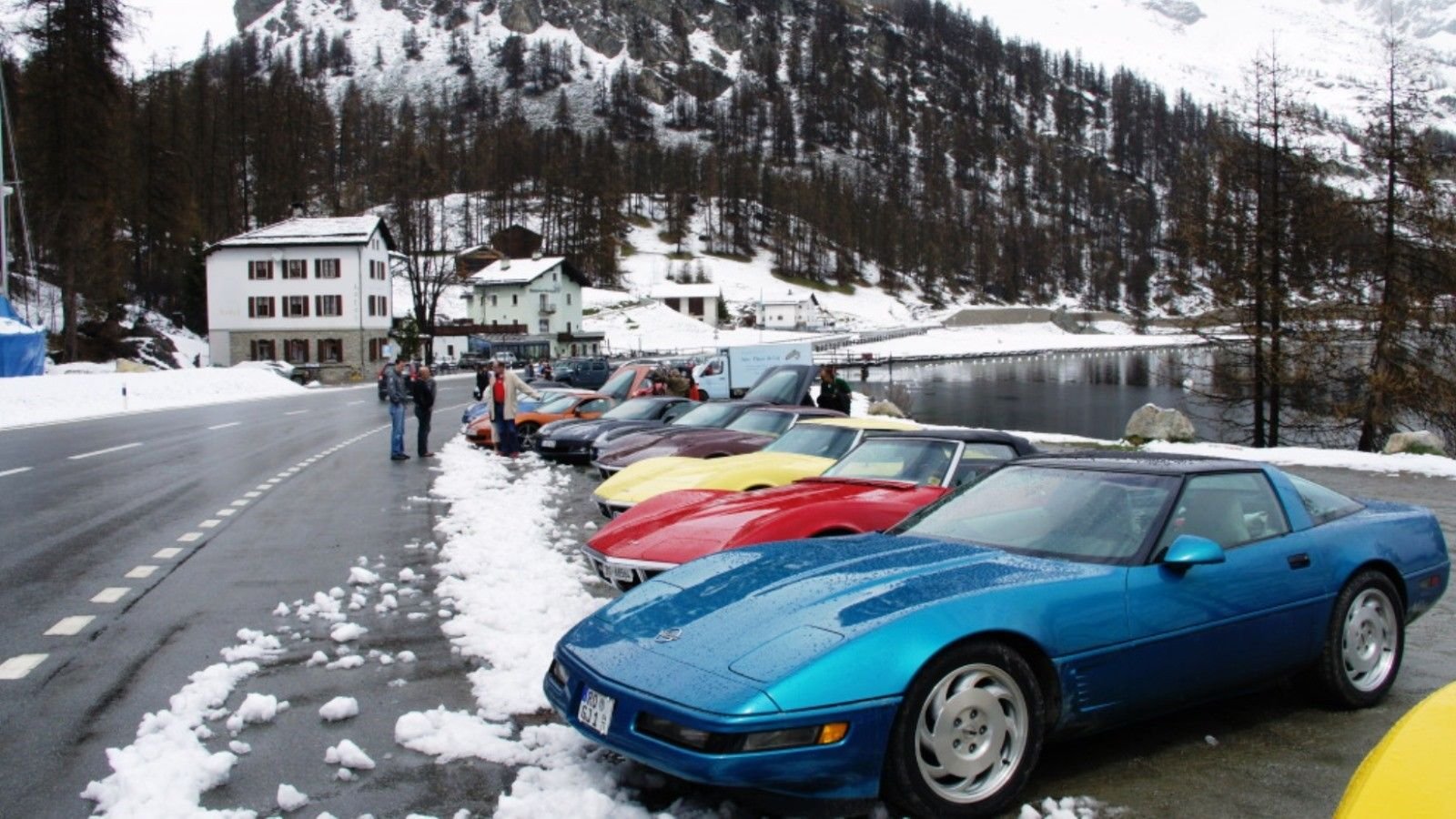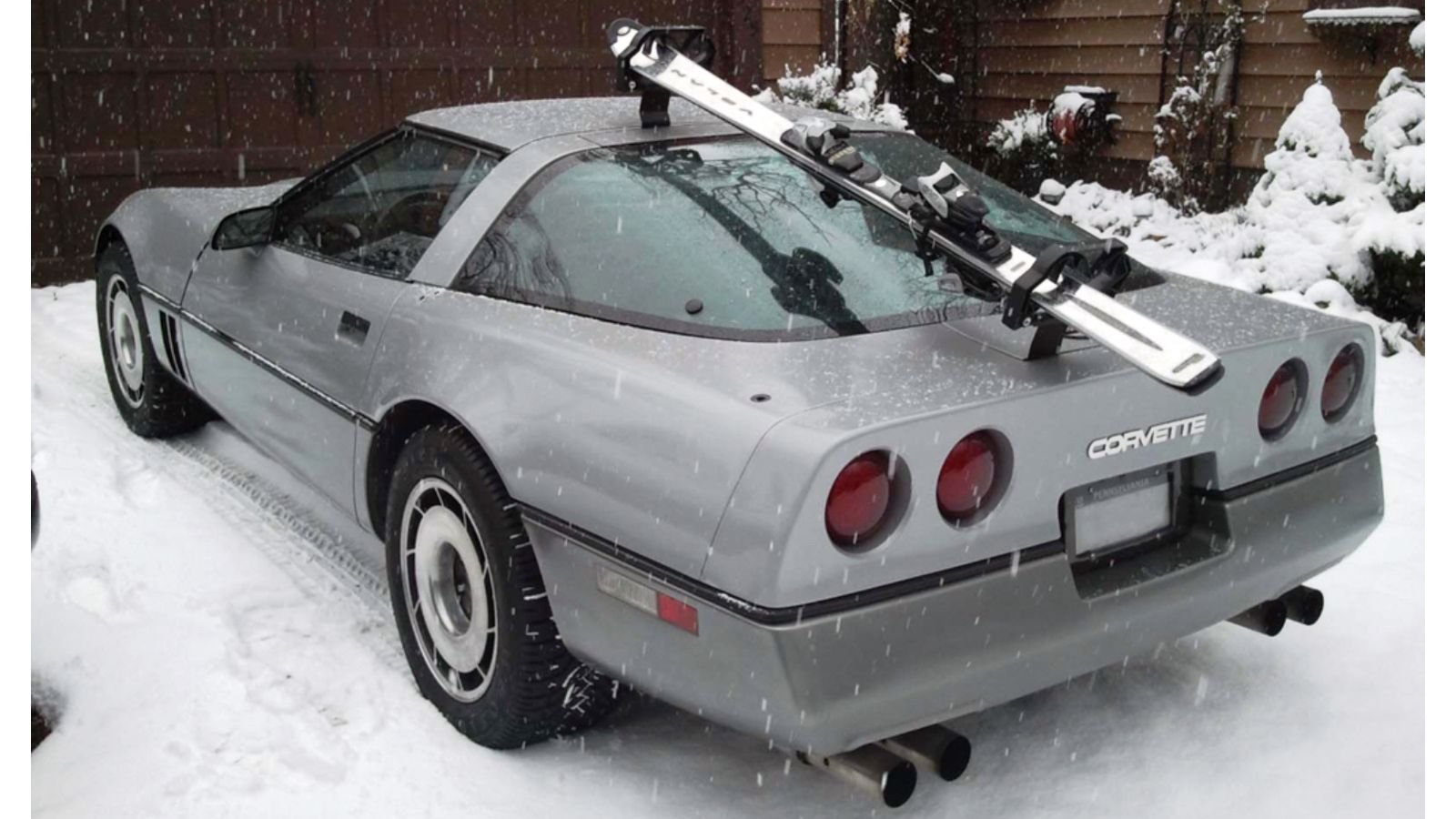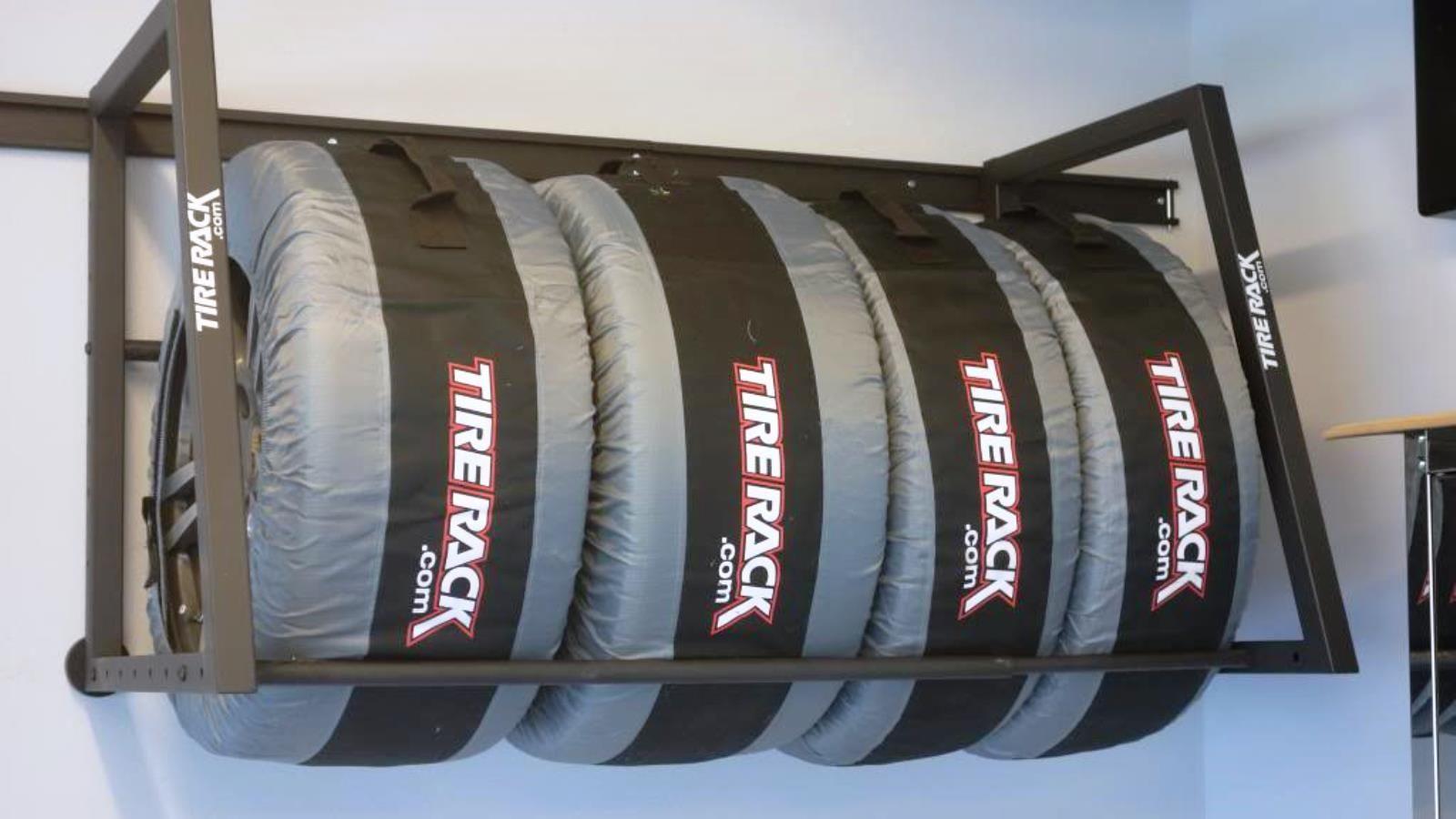7 Things to Know About Corvettes and Winter Tires
Here are a few things you should know about cold weather, mud and snow-rated tires if you are going to drive your Corvette through the winter.














1. Yes, You Can Drive a Corvette in the Snow
If you are the type of person who likes to do what other people think is impossible (or ill advised), or if you are just not fortunate enough to own a second car, you can drive a Corvette in winter weather. With the prices for C4 and even C5 'Vettes at their lowest, plenty are owned by enthusiasts as their one and only car.
Driving a C4 without traction control, and/or a limited slip differential is probably a bad idea as the roads are slippery, even with winter tires. But traction control has been standard on every Corvette since the 1992 model year, and anti-lock brakes became standard in 1986, so these cars are better in winter than you would think. Forum member YankeeDeDandy posted the above picture of a club drive through he Alps in February which ran into a snow shower.
>>Join the conversation about Corvettes and Winter Tires right here in Corvette Forum!
2. All-Season Tires Barely Cut It
If you have one of the higher spec recent models, like a Z06, chances are it has rubber mostly suited to summer driving. If you have a base model, especially with an automatic, chances are the tires are at least all-season in name. But neither of those tires are going to cut it if you have to drive with actual snow or ice on the ground. With all the power/torque a Corvette makes (even a tired C4) you need all the traction help you can get from the tires, even with ABS and TC. Snow tires have very soft rubber, and lots of tiny little sipes in them to grab slippery snow or ice.
>>Join the conversation about Corvettes and Winter Tires right here in Corvette Forum!
3. Winter vs. All-Season Tires
You may be temped to spend your money on dedicated wheels and summer track tires, and just drive all winter with the stock all-seasons, but that might end up costing more in the end. In head-to-head testing by Tire Rack and Bridgestone with identical BWM 328i sedans on a hockey rink, the all-season tires could barely accelerate, and even from 10mph took five more feet to stop. As you can imagine, higher speeds and corners were an even greater issue. Here's the whole Tire Rack snow tire vs. all season test.
>>Join the conversation about Corvettes and Winter Tires right here in Corvette Forum!
4. Wheel and Tire Packages Are Your Friend
Wheel and tire packages may cost a little more, but they will make your life much easier. For many late model cars, Tire Rack has inexpensive wheels and matched winter tires ready to mount and ship. If you already run aftermarket wheels, you can use your old OEM rims for winter tires or buy a set of scuffed OEM or aftermarket rims to use. You could get snow tires mounted to your current rims, but winter weather is very harsh on them, and chances are you are going to scuff them up in the snow and ice driving. Having dedicated winter rims also means you can easily swap back to summer rubber if there is a sudden warm weekend, without visiting a tire shop.
>>Join the conversation about Corvettes and Winter Tires right here in Corvette Forum!
5. Always Use Four Winter Tires
Back in the bad old days, cheapskates would install a pair of snow tires on the driven wheels only, figuring that would get them through the snow. But having traction on only the driven wheels of a rear-wheel-drive car means you are going to accelerate okay, but stopping is going to be a real problem. Remember the front wheels do the vast majority or your steering and braking, and if they have no traction you are going to only be able to accelerate into the nearest snow bank, tree or parked car.
>>Join the conversation about Corvettes and Winter Tires right here in Corvette Forum!
6. Taller and Narrower
Depending on what rims and what year 'Vette you have, you might want to go to a smaller diameter wheel with a taller sidewall tire. More sidewall means more sidewall flex, which means the tire rolls more like a tank tread and less like a marble. If you have ever lowered your tire pressure to get out of a slippery situation, you know how it works. Tire Rack offers a great tool to look up practically any year, make and model to find a winter tire that fits. On a 1992 C4 Corvette with the stock 17-inch wheels, they suggest a Dunlop tire two sizes narrower and one size taller, a 255/45R17 compared to the stock 275/40R17.
If you are at a loss for tires to fit something odd, like the 20-inch rims on a new Z06, look in the Corvette forums, because there are some hard core winter drivers with suggestions in there, like here.
>>Join the conversation about Corvettes and Winter Tires right here in Corvette Forum!
7. Save Your Expensive Tires for Summer
We all know good, sticky tires are expensive, so why not save those for the nice weather? Put a dedicated shelf in the garage, buy some tire totes, and put your tires away for the winter. Winter tires tend to be less expensive and just as much fun to drive on if you aren't pushing it hard. With a dedicated set of rims, and a place to store them, you can get several years use out of snow tires.
>>Join the conversation about Corvettes and Winter Tires right here in Corvette Forum!
For more general information, or help with repairs or maintenance, clink into the How-to section of CorvetteForum.com.
